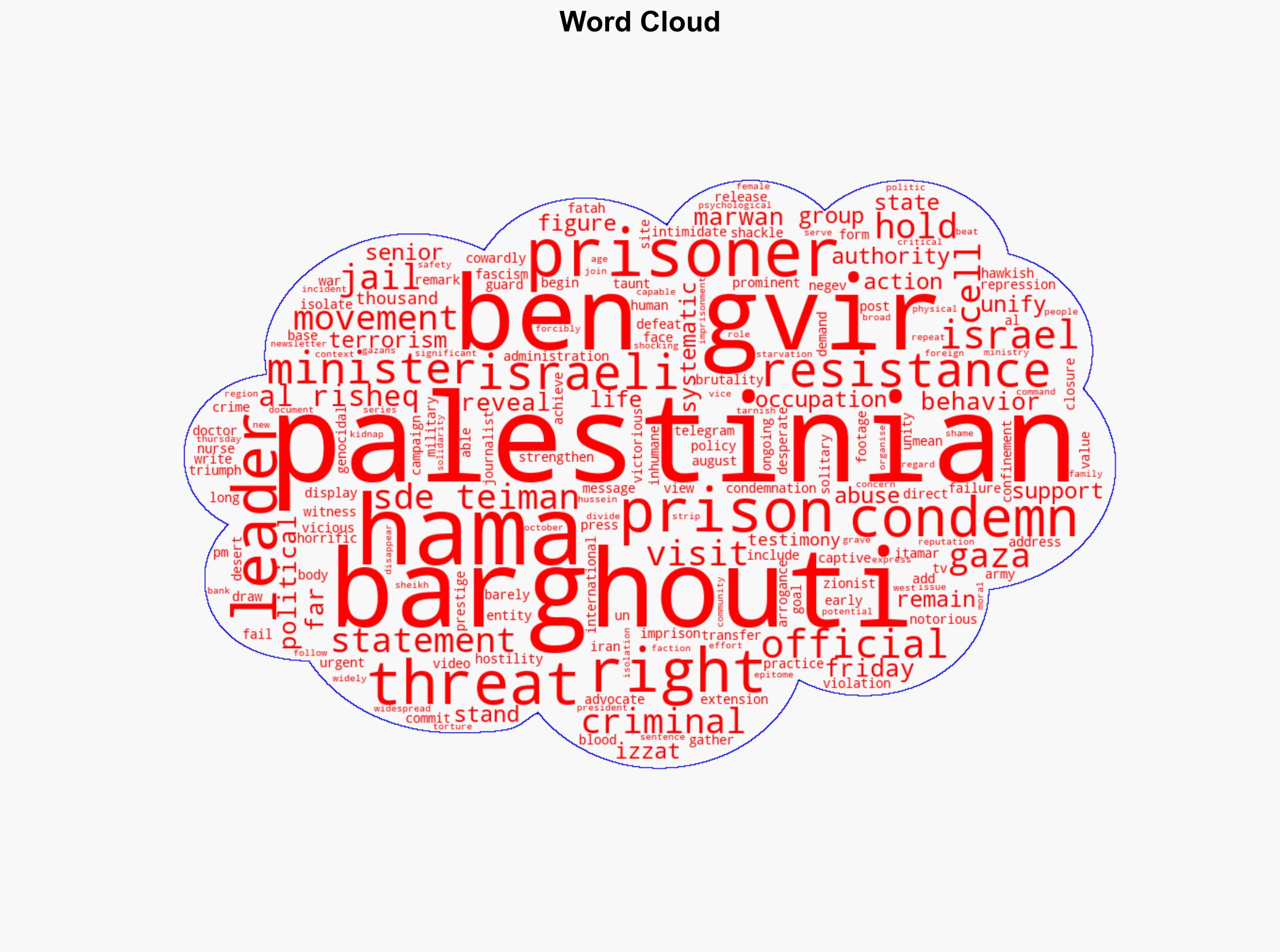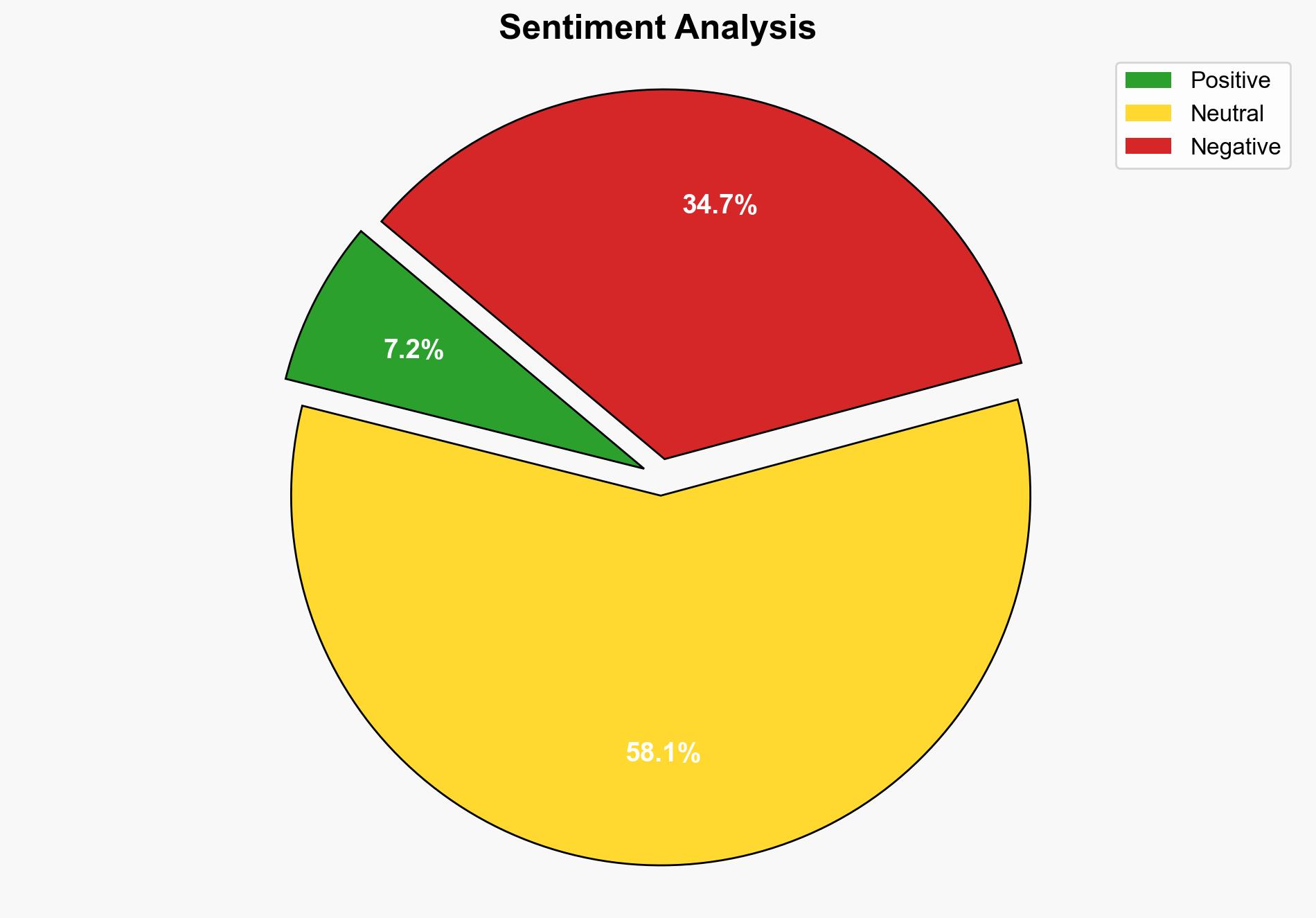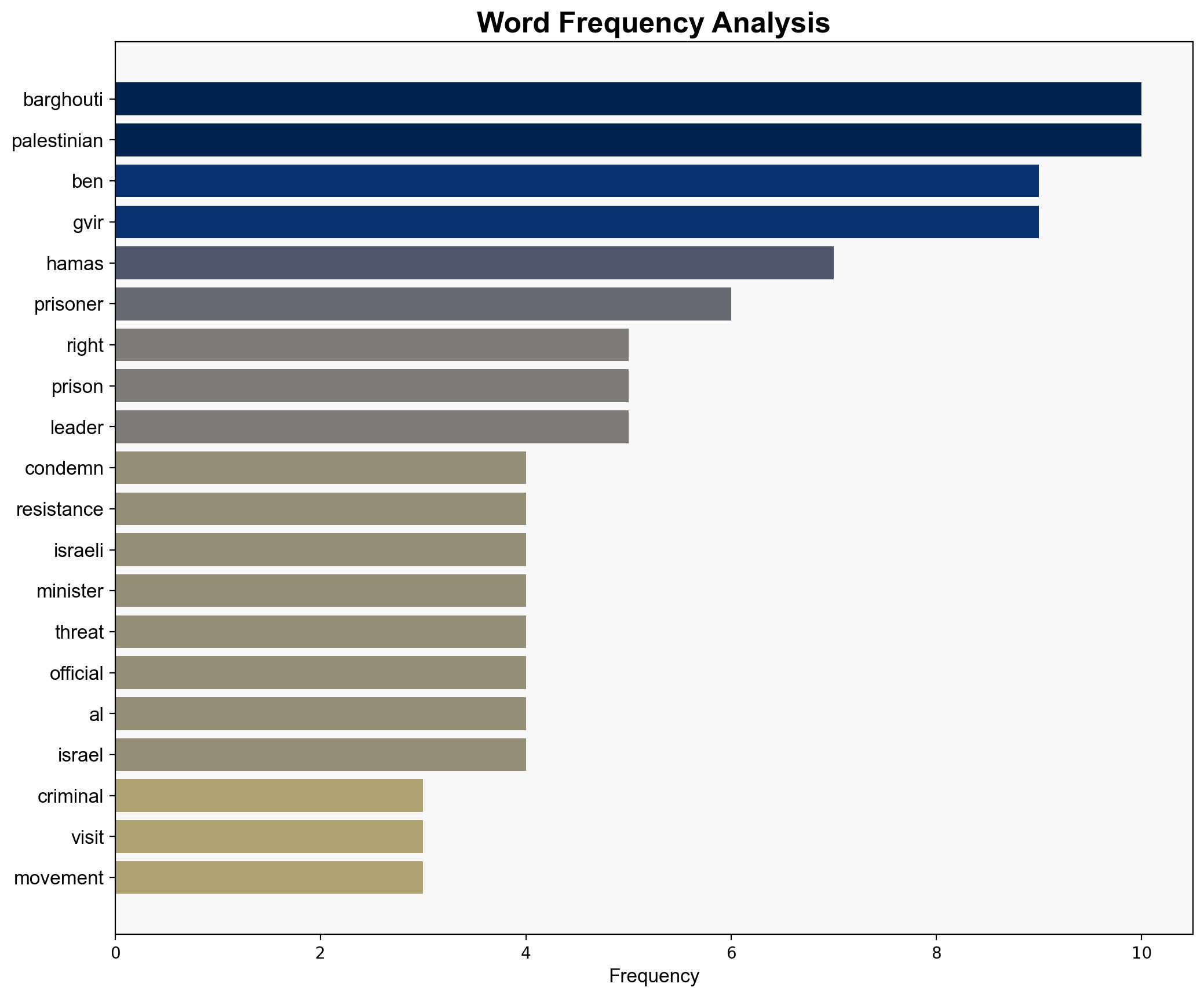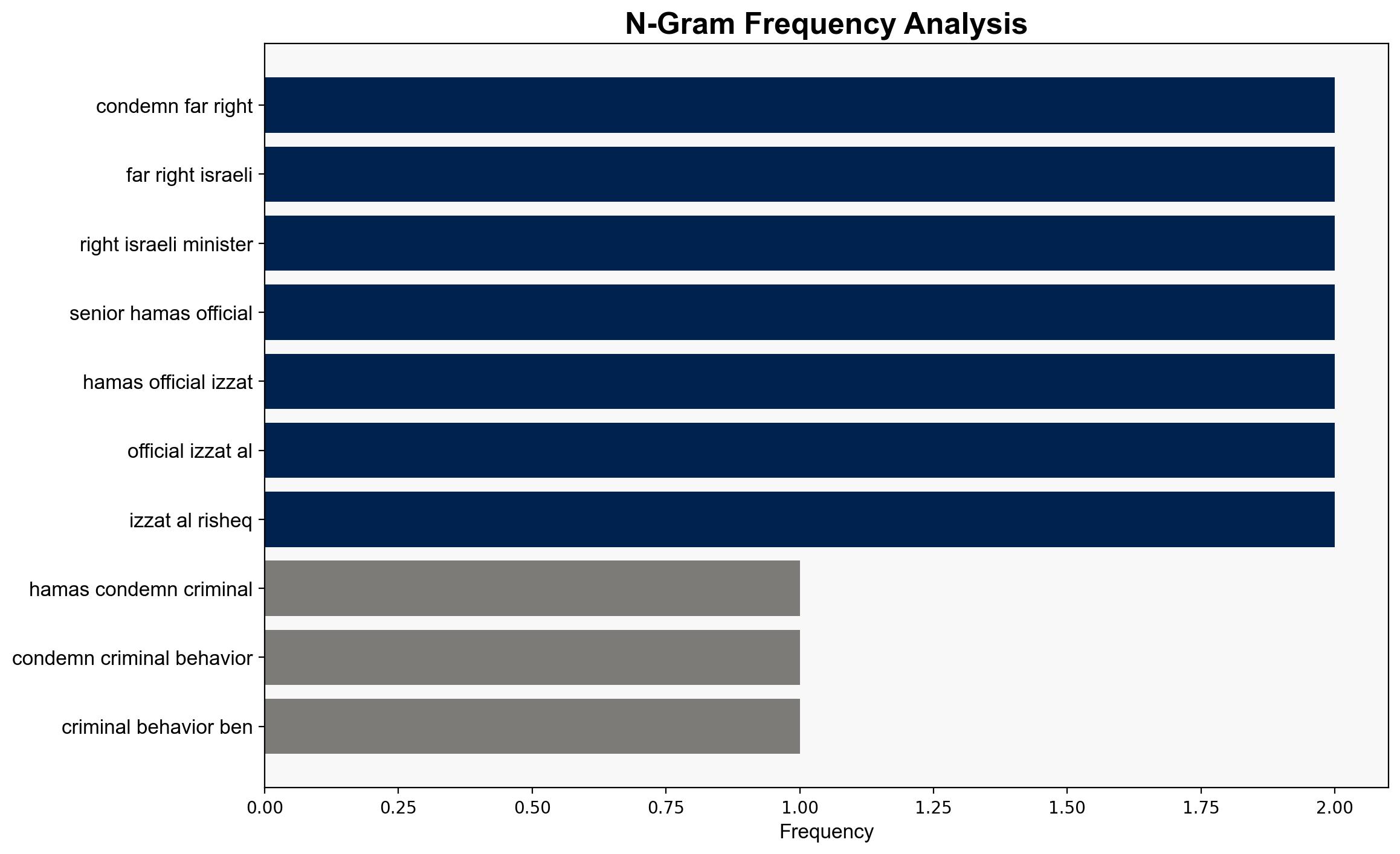Hamas condemns ‘criminal behavior’ of Ben-Gvir after Barghouti visit – Globalsecurity.org
Published on: 2025-08-16
Intelligence Report: Hamas condemns ‘criminal behavior’ of Ben-Gvir after Barghouti visit – Globalsecurity.org
1. BLUF (Bottom Line Up Front)
The most supported hypothesis is that Hamas’s condemnation of Ben-Gvir’s actions is a strategic move to galvanize Palestinian unity and international support against perceived Israeli aggression. Confidence in this hypothesis is moderate, given the complex regional dynamics and potential for biased reporting. Recommended action includes monitoring shifts in Palestinian political alignments and international responses to Israeli policies.
2. Competing Hypotheses
1. **Hamas’s condemnation is primarily a strategic maneuver to unify Palestinian factions and gain international sympathy.** This hypothesis suggests that by highlighting Ben-Gvir’s actions as criminal, Hamas aims to strengthen internal cohesion and attract global attention to Palestinian grievances.
2. **Hamas’s statement is a reactionary response to a direct threat against Marwan Barghouti, aiming to protect a key political figure.** This interpretation posits that the condemnation is focused on safeguarding Barghouti, who is seen as a unifying leader, against perceived threats from Israeli authorities.
Using Analysis of Competing Hypotheses (ACH), the first hypothesis is better supported due to the broader context of ongoing tensions and the strategic benefits of unifying Palestinian factions under a common cause.
3. Key Assumptions and Red Flags
– **Assumptions**: It is assumed that Hamas’s statements are representative of broader Palestinian sentiment and not solely a political tactic. It is also assumed that Ben-Gvir’s actions are perceived as threatening by a significant portion of the Palestinian population.
– **Red Flags**: Potential bias in the source material and the lack of corroborating evidence from independent sources. The possibility of exaggeration or misinterpretation of Ben-Gvir’s actions exists.
– **Blind Spots**: Limited insight into internal Israeli political dynamics and the specific motivations behind Ben-Gvir’s visit.
4. Implications and Strategic Risks
– **Escalation Risks**: Increased tensions between Palestinian factions and Israeli authorities could lead to heightened violence or unrest, particularly in sensitive areas like Gaza and the West Bank.
– **Geopolitical Impact**: International reactions could influence diplomatic relations, with potential sanctions or resolutions against Israel.
– **Psychological Dimensions**: The narrative of victimization and resistance could further entrench divisions and hinder peace efforts.
5. Recommendations and Outlook
- Monitor communications from key Palestinian leaders and groups for shifts in rhetoric or strategy.
- Engage with international bodies to assess potential diplomatic interventions or peacekeeping efforts.
- Scenario Projections:
- **Best Case**: De-escalation through diplomatic channels leading to renewed peace talks.
- **Worst Case**: Escalation into widespread violence and international condemnation of Israel.
- **Most Likely**: Continued tension with sporadic violence and international diplomatic pressure on Israel.
6. Key Individuals and Entities
– Marwan Barghouti
– Itamar Ben-Gvir
– Izzat al-Risheq
– Hussein al-Sheikh
7. Thematic Tags
national security threats, regional focus, geopolitical tensions, political strategy





